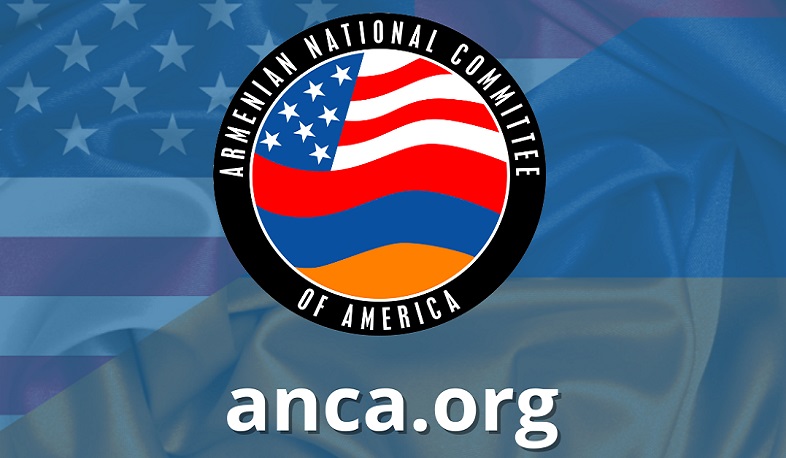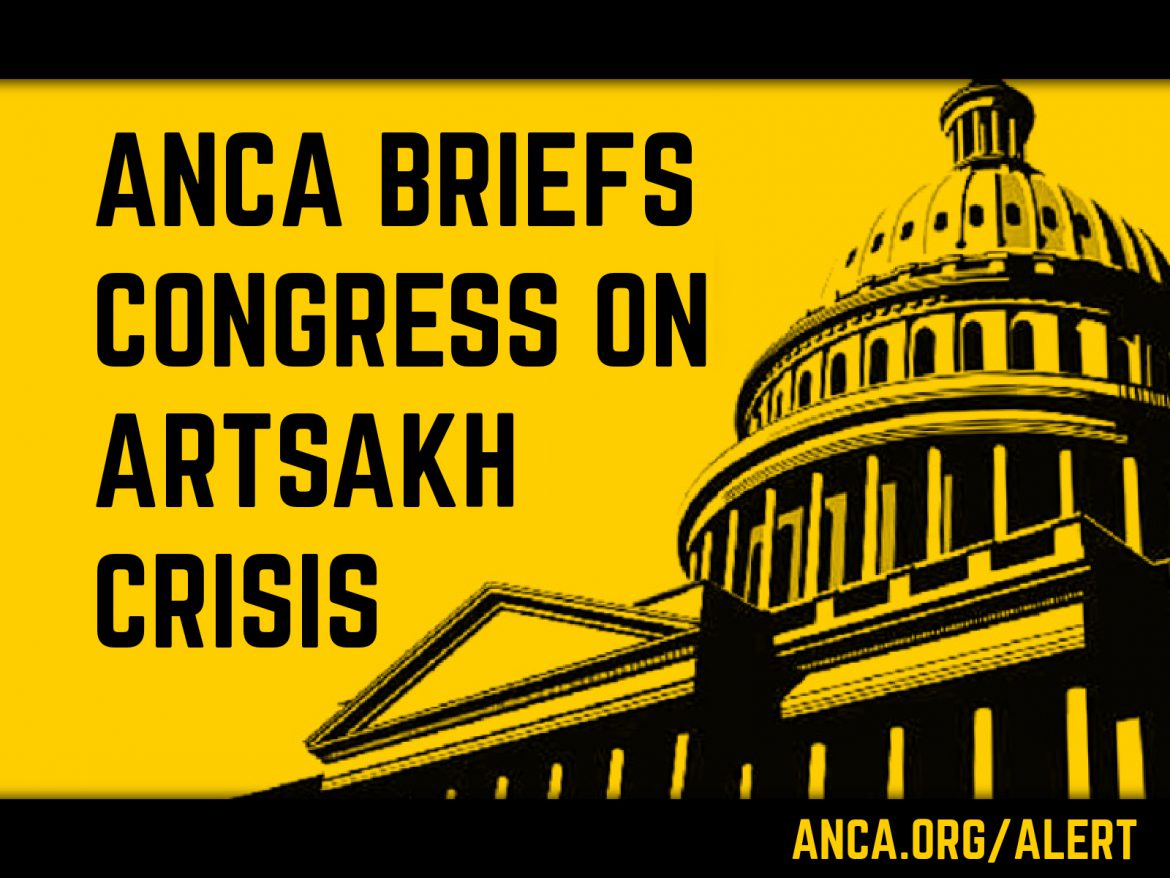Briefing Features Eye-Witness, On-the-Ground Report on the Impact of Azerbaijan’s Genocide against Artsakh
WASHINGTON, DC – The brutal impact of Azerbaijan’s ongoing ethnic cleansing of the 120,000 Armenian Christians from Nagorno Karabakh (Artsakh) was shared today with more than eighty Congressional offices in a briefing hosted by the Armenian National Committee of America (ANCA). The online update featured eyewitness accounts from the capital city of Stepanakert regarding the rapidly escalating humanitarian crisis that has left hundreds dead and tens of thousands displaced without shelter, food, or medicine.

ANCA Government Affairs Director Tereza Yerimyan led the Congressional ZOOM discussion, with Artsakh spokespeople describing a terrorized populace facing shortages of food, medicine, and fuel – seeking safe and unhindered transit through the assistance of the International Committee of the Red Cross (ICRC) or via methods of their own – to Armenia’s southern city of Goris. During the presentation, news emerged of a massive gas explosion in Stepanakert, resulting in hundreds injured, overwhelming local hospitals, and requiring emergency airlifts to save lives.
Since December 2022, Azerbaijan blocked the Lachin Corridor – the only road connecting Artsakh to Armenia and the outside world – depriving Artsakh’s population of food, fuel, and medicine, in what international experts have called genocide through starvation. On September 19th, Azerbaijani forces attacked Artsakh with rockets, artillery, and drones, killing over 300 and displacing tens of thousands. In the aftermath of the blockade and attack, over 6,000 Artsakh refugees have already reached Goris, with cars lined up for miles seeking safe-haven in Armenia with no security guarantees.
The ANCA’s Congressional briefing coincided with US Agency for International Development (USAID) Administrator Samantha Power’s and Acting U.S. Assistant Secretary of State Yuri Kim’s arrival in Yerevan for meetings with Armenian Government officials and a visit to southern Armenia to meet with Artsakh refugees. Over the past three years – despite repeated calls by Members of Congress, the Armenian American community, and a coalition of ethnic, human rights, and faith-based groups – the Biden Administration has refused to send U.S. humanitarian assistance to Artsakh, while continuing U.S. military assistance to Azerbaijan’s corrupt Aliyev regime.
During the Congressional briefing, the Yerimyan and Artsakh advocates called on Congress to press the Biden Administration to:
1) Send immediate humanitarian assistance – including an airlift – to help the growing number of Artsakh refugees in Armenia and those still under Azerbaijani threat in Artsakh.
2) Provide US and international monitors in Artsakh and along the humanitarian corridor to Armenia to ensure the safety of the Armenian population from further Azerbaijani aggression.
3) Enforce Section 907 restrictions on US military assistance to Azerbaijan
4) Sanction Azerbaijan for its aggression and genocidal actions against Artsakh’s indigenous Armenian population
Last week, a bipartisan group of U.S. Senate and House members introduced the “Supporting Armenians Against Azerbaijani Aggression Act of 2023” (S. 2900 and H.R. 5683) and a similar measure (H.R.5686), which would rescind the State Department’s waiver authority of Section 907 of the FREEDOM Support act. The measures also condemn Azerbaijan’s ethnic cleansing of Artsakh, call for humanitarian aid for Armenians affected by Azerbaijani aggression, and demand Azerbaijan release all Armenian POWs. The legislation also authorizes multi-year appropriations of direct U.S. humanitarian aid to Artsakh and for energy, science, and military programs in Armenia.




